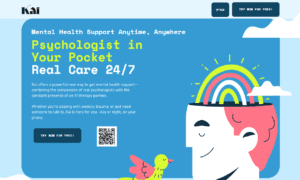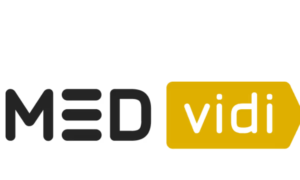For many years, telemedicine and other virtual care services have slowly entered the healthcare space. However, for many people, the pandemic served as a tsunami of change helping place these services on their radar. During 2020, we saw telemedicine and remote patient monitoring adoption surge as people sought to avoid in-person appointments and receive care at home, with many clinics drastically reconfiguring their operations to accommodate the rise in digital care. Still, despite this massive shift, many of the problems inherent to the healthcare industry still exist in today’s telemedicine services and platforms. Recognizing the challenges still faced by both patients and healthcare providers today, the RxDefine team embarked on a mission to create digital healthcare solutions that empower patients to get the care they deserve. Through the first-ever RxDefine Connected Consumer Platform, the company is transforming the patient journey – from consumer engagement to provider engagement and beyond.
To fully understand the scope of what RxDefine is striving to do in the healthcare field, it’s important to understand how the current state of the industry is failing consumers and pharma companies alike.
A growing need for personalization
Research from the Agency for Healthcare Research & Quality (AHRQ) found that only 12% of patients are comfortable navigating today’s healthcare ecosystem. Many end up feeling confused on how to find the right physicians and treatment, and many more wind up disengaging from fruitless patient journeys. Even when battling common conditions like diabetes or anxiety, it can be extremely difficult navigating the healthcare environment, and diagnoses can take years to achieve, ultimately delaying care that could improve a person’s quality of life.
What’s more, doctors are increasingly being pulled away from actively serving their patients. Mounds of administrative work make it difficult for these professionals to practice at the top of their license, leading to burnout and oftentimes a lack of quality care for patients. A growing shortage of physicians isn’t helping. The AAMC is projecting a shortage of 139,000 physicians by 2033, a shortfall that could have devastating, long-term effects on the industry. And unfortunately, the rise of telemedicine hasn’t alleviated these problems, but simply exacerbated them in many cases.
This myriad of issues faced by the healthcare space all point to a need for increased personalization on the consumer level. As co-founder and CEO of RxDefine, Chase Feiger explained to Forbes, “It’s evident patients need a clear, personalized, curated, and easy to navigate call-to-action that provides the maximum convenience at little cost.”
This need directly relates to the pharmaceutical industry, which historically has been unable to meet patients where they are and when they need a certain company’s products the most. Typically when a pharma company wants to market their treatment, they rely on non targeted TV ads which prompt consumers to talk to their doctors. These companies spend over $6 billion each year on these unoptimized, difficult-to-attribute, and largely ineffectual TV advertisements. They spend almost $20B in total when accounting for all direct to consumer channels. In an age where consumers crave personalized and curated experiences, these vague call-to-actions aren’t cutting it. That’s where RxDefine is stepping in to create a new way for patients, providers, and pharma companies alike to engage with each other in dynamic, personalized, and convenient ways.
About RxDefine
Founded in 2019, RxDefine was created when co-founders Chase Feiger, MD and Ahmed Elsayyad noticed unnecessary levels of friction in the patient journey. They likened it to overcomplicating a typical retail experience explaining, “You’re wanting to buy a new TV, so you go to BestBuy.com. And on the website, it says you have to go talk with your local TV rep in order to buy that TV”. As we mentioned before, pharmaceutical companies can spend millions of dollars each year on bland TV ads that don’t actually match consumers in need of those treatments with those treatments. This is where Feiger and Elsayyad’s company is working to streamline the journey from patient engagement and education to treatment. Their team helps create and distribute software that allows consumers to directly engage with pharma brands – all in collaboration with Rxdefine’s pharma company clients.
So how does it work? The very first connected consumer platform of its kind, RxDefine takes care of the full patient experience, from engagement to provider education and everything in between. The ultimate goal is to empower people by helping them better understand their health and the treatment options available to them. By creating a more personalized experience, patients can come into appointments already engaged and informed, making it easier for patients to feel empowered and self-advocate.
Building the future of telemedicine
Despite all of the advances the space has seen over the past few years, the health tech industry still has a lot of room for growth and improvement. People across the country are still struggling to find doctors who will listen, and treatments that will work for their unique conditions and needs. Of course, these problems present opportunities RxDefine is hoping to capitalize on in the future. And with plans to launch new therapeutic categories across pulmonology, neurology, psychiatry, women’s health, urology, cardiovascular disease, oncology, infectious disease, and rheumatology in conjunction with their pharmaceutical partners, it seems like the company will easily be able to move from strength to strength moving forward into 2022 and beyond. Soon, greater ease of access and convenience will take the ‘patience’ out of being a patient for good.



































